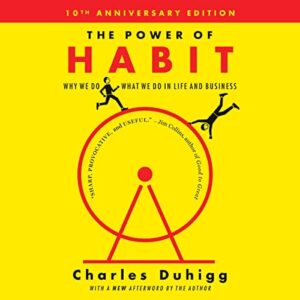Are You Ready for February?
How are your goals going so far this year? Have you hit the “end of January” slump – or are you going strong? 🙂 January is notorious for being the month when many well-intentioned resolutions fall by the wayside. Research indicates that by the third week, people often throw in the towel on their goals. The initial enthusiasm of week one gives way to the so-so vibe of week two, and by week three, the temptation to quit becomes VERY VERY real. So, how do we navigate this cycle and actually make lasting changes? Well, after lots of research and some trial and error over the past few years, I’ve discovered a more practical approach that seems to do the trick for me: setting systems for success, instead of goals.


The idea is to shift our focus from fixating on specific, often lofty goals to creating systems for success or habits that lead to those outcomes. Interestingly, it’s a bit like changing our mindset from “I want to lose weight” to “I’ll intentionally incorporate regular exercise and healthier meals into my routine.”
Why systems for success? Well, goals can be overwhelming. They set us up for an all-or-nothing mindset, and when we fall short, it’s very easy to feel defeated. Systems for success, on the other hand, are about the journey, not just the destination. They are the daily or weekly habits that, over time, contribute to positive changes.
So, let’s say your goal is to read more books. Instead of setting a target number of books to read by the end of the year, develop a system of reading for a set amount of time each day or week. Thankfully, this is a more manageable and sustainable approach. Then, when you miss a day, just pick up where you are and move on.
Systems for Success
The shift to systems is about being realistic and forgiving. Life happens, and setbacks are a part of any journey. Instead of viewing them as failures, we can see them as opportunities to adjust and improve our systems.
Great Books
I’ve been reading a lot lately on habits and the importance of intentional focusing on them. Habits go with systems, and they certainly help us to establish and stick to our goals. The books pictured above are some of my favorites on the subject – and I can recommend all of them. The quotes below are some which I found inspirational as I plan and replan my year and months ahead.
“The difference between who you are and who you want to be is what you do (on a daily basis).” — Charles Duhigg
“Habits are the compound interest of self-improvement.” — James Clear
“What you do every day matters more than what you do once in a while.” -Gretchen Rubin
“We like to think of our champions and idols as superheroes who were born different from us. We don’t like to think of them as relatively ordinary people who made themselves extraordinary.”
― Carol Dweck
“A mini habit is a VERY small positive behavior that you force yourself to do every day. Small steps work every time, and habits are built by consistency, so the two were meant to be together.”
― Stephen Guise
Tiny Changes Make a Big Difference
Instead of focusing on ambitious resolutions, it seems more doable to implement small, manageable changes that align with your desired outcomes. It’s not about aiming for a grand transformation overnight; rather, it’s about building a system of consistent, positive actions – or habits.
For example, one of my goals is to eat better. Instead of a vague goal, I decided that the system that I needed involved setting a rotation of 20-30 meals which were healthy and doable in my busy life. Once I took the time to set up the rotation, then meal planning and prepping (and shopping) became easier. Currently, those rotations evolve and change a bit as I discover new recipes – but the focus on healthy meals makes my system work. I also set up a list of healthy snacks, lunches, breakfasts and even (healthy) desserts, which help keep me on track. My goal is the system and with the right habits of intentionally choosing and planning meals, the result will be a better diet all the way around.

Now, let’s use an example “to be healthier” by this time next year. What does that actually mean? How should I manage and measure this in smaller steps? Also, how do I set up a System for Success that will work in my busy life?
20 Tips for Setting Up Your Systems for Success
1. Start Small
Initially, begin with tiny, manageable changes. Working with small changes helps reduce resistance, and makes you successful quickly. It also motivates you to stick with it.
2. Focus on One Habit at a Time
Intentionally focusing on one thing keeps it manageable and not overwhelming.
3. Connect This New System to an Existing Habit
Associating a new habit with an existing routine helps to anchor the new behavior to something you already do regularly.
4. Set Clear and Specific Goals within your system.
In general, knowing exactly what you want to achieve aids in measuring your progress and staying motivated.
5. Establish a trigger
Identifying a trigger or a cue will support and prompt you to perform the habit automatically over time.
6. Create a Routine
Developing a consistent routine around your habit encourages success. If you set a specific time and place for the activity, it will be easier to integrate into your daily life.
7. Use Reminders
By all means, set reminders, alarms and other notifications to prompt you to engage in the habit until it becomes ingrained into your routine.
8. Track your progress
Keep a record of your progress in your journal, a habit-tracking app or a calendar. Tracking reinforces the commitment and provides a visual representation of success.
9. Reward Yourself
Always, remember to celebrate small victories along the way.
10. Stay Consistent
Not surprisingly, consistency is the key to habit formation. Stick to your habit, even on days when motivation is low.
11. Build a Support System
Also, share your goals with friends, family, or a supportive community to provide encouragement and accountability.
12. Set Ranges for your Goals
Research tells us that if we set a range goal, we will hit it more often (Example – walk 5-10 minutes outside daily).
13. Understand Your Motivation
Clearly, understand WHY you want to develop a particular habit. Knowing the underlying motivation helps maintain focus during challenging times. Ask yourself – What do you really want – and then determine that you are willing to do the work needed.
14. Visualize Success
Then, visualize the benefits and success associated with your habit. Mental imagery can boost motivation and create a positive mindset.
15. Make It Enjoyable
Remember to choose habits that align with your interests and values. If you enjoy the activity, you are more likely to stick with it.
16. Modify Your Environment
Don’t forget to set up your environment to support the habit. Remove obstacles and make it as easy as possible to make your system successful.
17. Commit to at least 30 Days
In general, research tells us that it takes 21-30 days to form a new habit. Committing to this period of time increases the likelihood of long-term adherence.
18. Learn from Setbacks
Make sure you accept that setbacks are a natural part of habit formation. Review and analyze what went wrong, learn from the experience and then adjust your approach as needed.
19. Be Patient
Of course, habit and systems take time to develop. Be patient and realistic about the timeline for seeing significant changes. Focus on the system – and then the changes will come.
20. Cultivate a Growth Mindset
Finally, embrace challenges and view failures as opportunities for growth. A growth mindset fosters resilience and perseverance in developing a better life.
The shift in mindset from goals to systems fosters a more forgiving and realistic approach. Remember, it is about progress, not perfection. This practical strategy acknowledges that setbacks are a part of the journey and encourages resilience rather than discouragement.
Systems for Success Can Result in Big Changes – One Habit at a Time
As you navigate the challenges of February and beyond, consider reevaluating your resolutions. Instead of getting caught up in the traditional goal-setting cycle, embrace the idea of establishing systems which lead to sustainable change. It’s a down-to-earth strategy that prioritizes progress over perfection, making the journey toward positive change a bit more attainable and a lot less daunting. What do you want to accomplish this year? And more importantly – What are you WILLING to do to accomplish it?





















16 Responses
Very great, starting small is something that helped me, and I learned that a bit later than I had to. Great and informative post!
It took me a while to learn it too! Thanks Fransic!
Ah, January – the classic trial run for the year’s resolutions. It’s interesting how it tests our initial enthusiasm, isn’t it? But hey, every stumble is a step in learning how to keep those goals on track! Love your list on how to get on track and be productive.
Oh those stumbles toward positive results can be challenging – but productive for sure! Thanks for your comment!
Great post with great tips. I’ve been reading more self-help books and learning from setbacks. Thanks for sharing!
Thanks Sheenia! It’s certainly the time of year for self-help books and resets.
Great post and perfect tips! And thank you for the book recommendations. As a bookworm, I really appreciate it. 😊
Thanks Monika for the comment. I love books too! My favorite of this group is Atomic Habits – which I had to highlight and then read more than once. 🙂
This is exactly what I needed to read. And you’re right I stopped journaling by the third week of January, but I have continued my positive affirmation box. I’m not consistent, but it’s a small win and helps me change my whole day by reading them. Putting them right next to my bedside makes me look at the box every day.
Continuing the positive affirmation box is certainly a win – and a great step to a better you! Good start on a great habit!
You have some pretty great books on the list! Atomic Habits Is a must read!
Totally Agree! Atomic Habits is my FAVORITE!
Focus on one habit at a time is great advice! I always start with many goals and big steps, and in a couple of weeks, my energy goes down. Thank you for the helpful tips!
Thanks Olga! Hope 2024 will be your best year yet!
Love this post!! Resonates so much with me right now- and I love the idea of creating systems instead of setting goals, great information!
Thanks Taihjma!